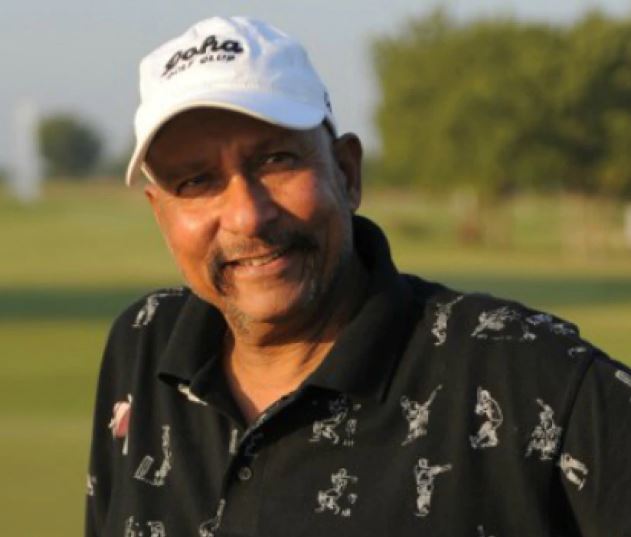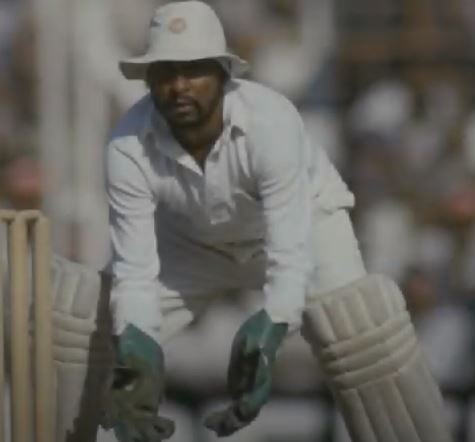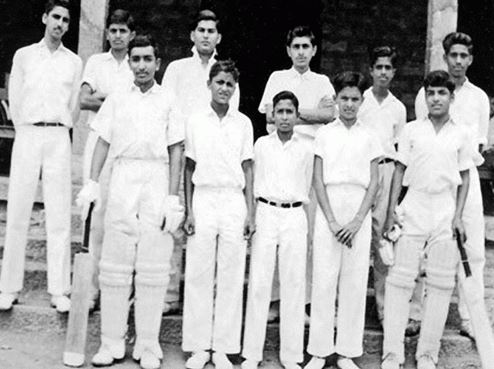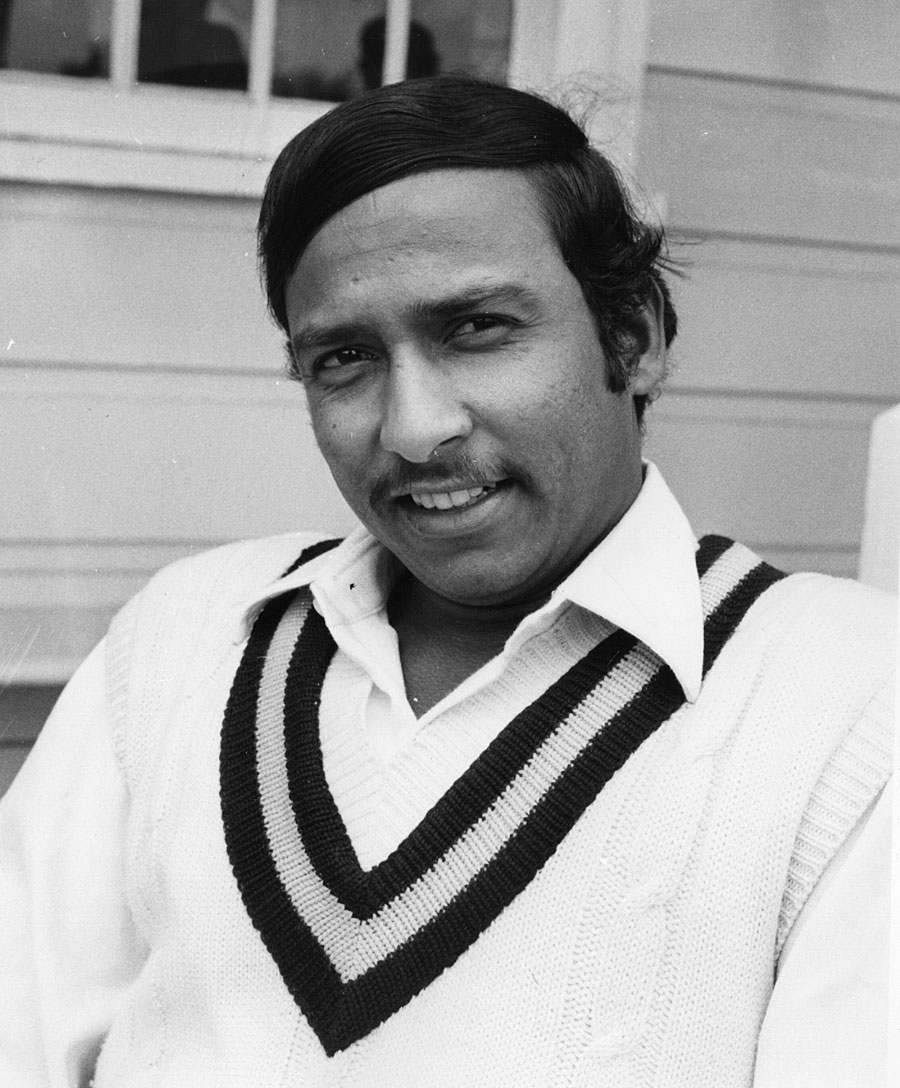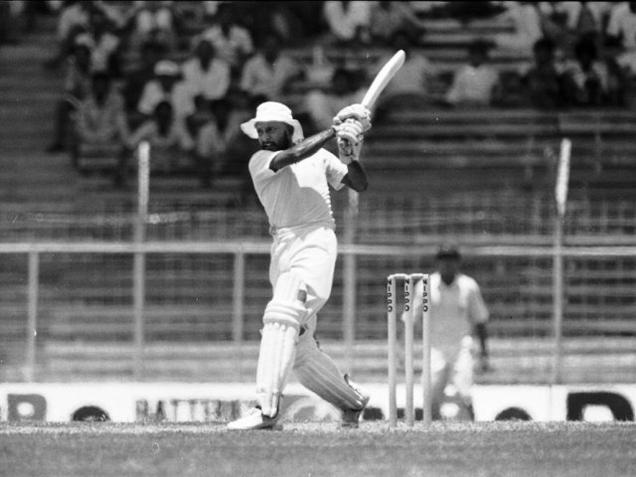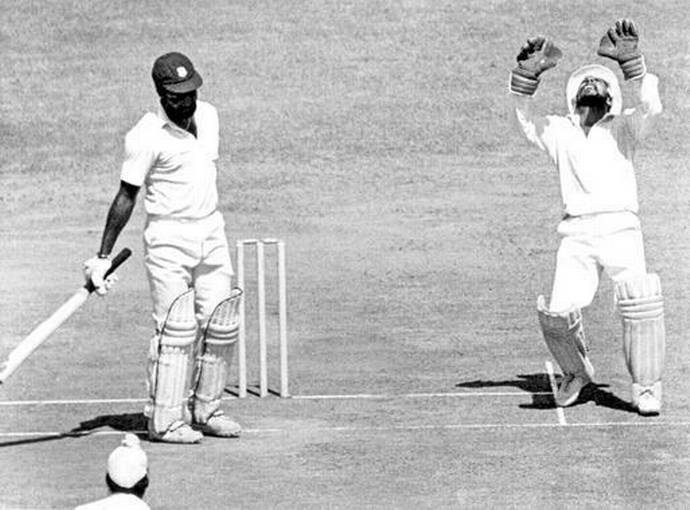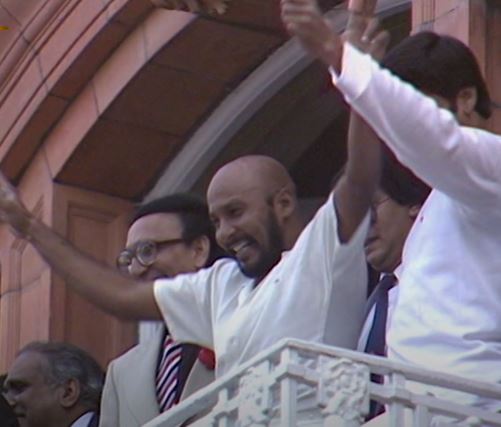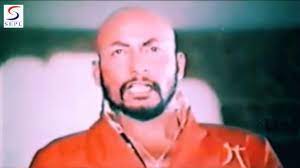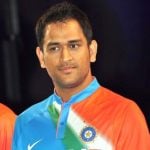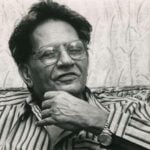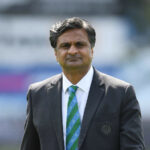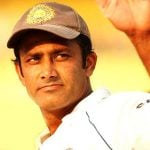Syed Kirmani Age, Wife, Children, Family, Biography & More
Quick Info→
Religion: Islam
Age: 75 Years
Hometown: Chennai
| Bio/Wiki | |
|---|---|
| Full name | Syed Mujtaba Hussein Kirmani [1]ESPN |
| Nickname | Kiri [2]Cricbuzz |
| Name earned | Kojak [3]Sportstar |
| Profession | Former Indian Cricketer (Wicketkeeper-batter) |
| Physical Stats & More | |
| Height (approx.) | in centimeters- 162 cm in meters- 1.62 m in feet inches- 5’ 3” |
| Eye Colour | Dark Brown |
| Hair Colour | Bald |
| Cricket | |
| International Debut | ODI- On 21 February 1976 against New Zealand at Christchurch Test- On 24 January 1976 against Pakistan at Auckland T20I- N/A Note- There was no T20 at that time. |
| Last Match | ODI- On 12 January 1986 against Australia at Brisbane Test- On 02 January 1986 against Australia at Sydney T20I- N/A Note- There was no T20 at that time. |
| Domestic Team(s) | • Karnataka • Railways • Mysore • South Zone • Rest of India • Central Zone • Indian Board President's XI • AL Wadekar's XI • Kerala Chief Minister's XI • State Bank of India • Andhra Chief Minister's XI • Vazir Sultan Tobacco Colts XI |
| Coach/Mentor | Keki Tarapore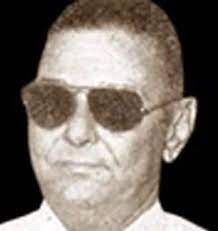 |
| Batting Style | Right-handed |
| Bowling Style | Right arm offbreak |
| Records (main ones) | • Third most stumpings in a Test Cricket (38) [4]ESPN • Fifth most dismissals in an innings (6) [5]ESPN • First wicketkeeper to scalp five wickets behind the stumps in World Cups. [6]LinkedIn • Highest 7th wicket partnership for India in a Test match alongside Ravi Shastri [7]Cric Tracker • Only Indian to score a century as a night watchman.[8]Cricfit |
| Awards, Honours, Achievements | • Best Sportsperson of the Year by the Karnataka Government in 1968 • Arjuna Award by the Government of India in 1980 • Padma Shri Award by the Government of India in 1982 • Ekalavya Award by the Governor of Karnataka in 1992 • Rajiv Vikas Ratan Award by the International Friendship Society of India in 1994 • Col CK Nayudu Lifetime Achievement Award on 5 January 2016 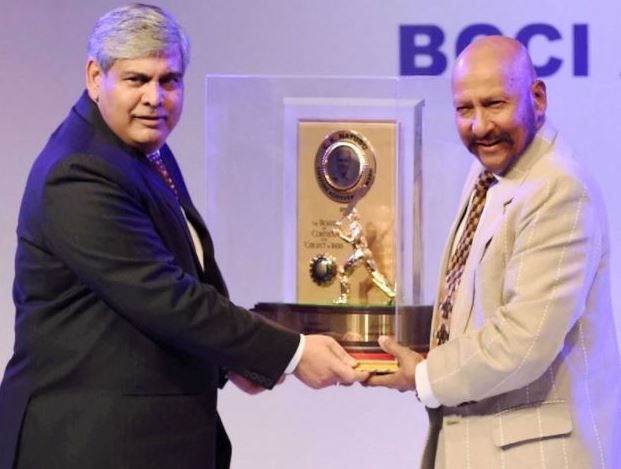 |
| Personal Life | |
| Date of Birth | 29 December 1949 (Thursday) |
| Age (as of 2024) | 75 Years |
| Birthplace | Madras (now Chennai) |
| Zodiac sign | Capricorn |
| Signature | 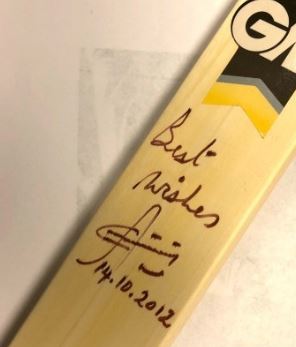 |
| Nationality | Indian |
| Hometown | Hyderabad |
| School | St. Joseph Indian High School, Bangalore |
| College/University | St. Joseph Evening College, Bengaluru |
| Educational Qualification | Bachelor of Arts [9]LinkedIn |
| Religion | Islam [10]The News Minute |
| Relationships & More | |
| Marital Status | Married |
| Marriage Year | 1979 |
| Family | |
| Wife/Spouse | Habiba Kirmani 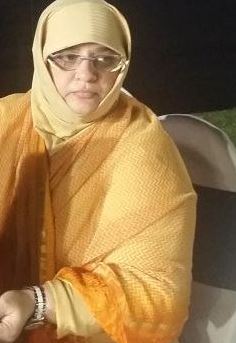 |
| Children | Son- Sadiq Kirmani (cricketer) Daughters- Nishad Fatima Kirmani and Mehnaaz Fatima Kirmani |
| Favourite Things | |
| Cricketer | Bob Taylor |
| Singer | Mohammed Rafi |
Some Lesser Known Facts About Syed Kirmani
- Syed Kirmani is a former Indian Cricketer widely known as one of the finest wicketkeepers India has ever produced. His contribution with both bat and glove was significant in taking India to many historic wins during the 1970s and 1980s.
- He saw the transition phase from the spin quartet to the rise of the Indian pace battery led by Kapil Dev. He was equally good in both generations with his top-notch keeping skills.
- In an interview, while talking about his wicketkeeping skills, Kirmani said,
Nobody taught me the details of wicketkeeping. If somebody started keeping wicket, he was told to keep every time. I excelled without any technique, without knowing what wicketkeeping was all about. Nobody told me about technique.”
- He started playing cricket at the age of 11. The first time he started wicket-keeping was with a brick that acted as a glove. He revealed in an interview that the captain approached him and told him to stand behind the stumps and stop the ball for which, he recalled that
“Now, how do I stop the cork ball? There were bricks lying there. I picked one up and started stopping the ball with it. The bricks would break and I would get a scolding from the contractors who were constructing buildings there.”
- There was a lot of discouragement from his parents to opt for sports as his career. They wanted him to earn a degree and do a government job.
- During 1965-66, an Australian school side was touring India, where Kirmani also played. He played three tests and scored 121 in Chennai, 132 in Hyderabad, and 75 in Bombay (now Mumbai). He became the vice-captain of the Indian school during their tour to Australia. It was the first instance in Indian cricket that an Indian school went abroad to play cricket.
- He got his first call as the reserved wicketkeeper for India during its tour to England in 1971 under the captaincy of Ajit Wadekar when Farookh Engineer was busy with Lancashire duty. However, he didn’t get the chance in playing eleven during that series. He had to wait for five years before getting his first test cap.
- He succeeded flamboyant Farookh Engineer as a wicketkeeper in 1976 and made a mark in his second innings itself by dismissing six batsmen behind the stumps, which was a record at that time. He held on to the catches of New Zealand’s skipper Glenn Turner, Richard Hadlee, and Richard Collinge of the bowling of Mohinder Amarnath, their wicket-keeper Ken Wadsworth, and Dayle Hadlee of the bowling of Madan Lal. He ended that series with 305 runs at an impressive average of 65.33. He also stumped Bevan Congdon off the bowling of Bishen Singh Bedi.
- Later in 1978, his form dipped a bit, and he was left out of the squad during the 1979 World Cup to be held in England. He was replaced by Bharath Reddy and Surinder Khanna. However, they didn’t perform well in that World Cup. Sunil Gavaskar was also sacked as the captain of India. Their omission rose to many critics. There were rumors that they both are loomed by the organizers of Kerry Packer’s World Series Cricket. In an interview, he revealed that Gundappa Vishwanath was the person who came to him with rolling tears and told him that you are not in a team.
- But he took it in a positive way and worked hard on his fitness and wicketkeeping skills. As time went by, Kirmani grew in concentration and fitness with quick keeping reflexes.
- He made a splendid comeback against Australia in the same year and scored unbeaten 101 runs coming as a night watchman that lasted for almost a day and became the third batsman after Nasim-ul-Ghani in 1962 and Anthony Lungford Mann in 1977-78 to score a century in that position.
- He continued his form during the Australia tour wherein the third test, chasing a target of 143, Australia dipped in between when Kirmani removed Graeme Wood stumped. That stumping by Kirmani impressed Richie Benaud so much that during his commentary, he said
This is the best leg-side stumping, I have seen in my life!”
- He was also good with the gloves taking 17 catches and two stumpings against Pakistan and equalling the record for most dismissals in a series. Previously, it was held by India’s Naren Tamhane.
- Later on, against England, he showed his immaculate glovework, when he didn’t concede any runs of a bye in three consecutive test matches in 1979-80. Almost 1964 runs were scored that time.
- Kirmani was showing his class with batting as well. He partnered with Sunil Gavaskar in a record stand of 146 runs for the ninth wicket during a Madras test against West Indies in 1983.
- During the 1983 World Cup, against Zimbabwe when India was in a critical situation. Srikkanth, Gavaskar, Amarnath, Sandeep Patil, and Yashpal Sharma got out cheaply. India was 17 for 5 when Kirmani came out to bat. He played a supporting role with Kapil Dev contributing 126 runs for the ninth wicket. This partnership proved critical and India went on to win that match by 31 runs to stay alive in the series. He was also equally good with gloves taking five catches of Ali Omarshah, Jack Heron, Dave Houghton, Robin Brown, and Peter Rawson.
- He took a splendid catch of Faoud Bacchus while diving towards the first slip in the 1983 World Cup Finals, which earned him an award for the best wicketkeeper of the tournament by one of the greatest wicketkeepers of England Godfrey Evans.
- After the 1983 World Cup, due to injury concerns, his career was about to end, giving way to the young lads like Kiran More, Chandrakant Pandit, etc.
- In 1984-85, during the first test at Wankhede, England won the toss and opted to bat first. They put on 195 runs in the first innings with Lakshman Sivaramakrishnan picking up six wickets for 64 runs in 31.2 overs. In reply, India was at one stage 218 for 6, when Kirmani came out to bat. He made a splendid partnership with Ravi Shastri of 235 runs and took an impressive lead of 270 runs. Kirmani’s contribution was 102 runs after facing 210 balls and hitting 10 fours. Ravi Shastri, on the other hand, scored 142 runs.
- After restricting England to 317 runs in the second innings, India got the target of 51 runs, which they achieved easily. Both the centuries of Kirmani came in a winning cause.
- During the Australian tour in 1985-86, while taking a catch of Allan Border, he got injured that forced him to remain on the bench for the rest of the series. Thus, ending his magnificent international career, though, he continued to play in the domestic circuit for Railways. He has 2759 runs in 88 Tests and 373 runs in 49 ODIs with the highest score of 48.
- He remains the legend in domestic cricket with 9620 runs and 367 catches behind the wicket with 112 stumpings. His role was significant when Karnataka was the powerhouse in the 1970s.
- Post-retirement, he worked as a vice-president of Karnataka State Cricket Association (KSCA), the chairman of the National Selection Committee in 2004, and as the Public Relations Manager in the State Bank of India,
- He has taken only one wicket in his entire international career which came against Pakistan in 1983-84 at Vidarbha Cricket Ground. Azeem Hafeez was his victim.
- His son has also played List-A cricket for Karnataka while his daughter married former Indian cricketer Abid Ali’s son.
- He has also acted in the movie “Kabhi Ajnabi The” alongside Sandeep Patil in 1985. Other than that, he also remained a part of many Kannada films.
- It is said that Kirmani has a huge role to play in MS Dhoni‘s inclusion in Ranji matches while he was an East Zone selector. After looking at his consistent performance, Kirmani selected him on the recommendation of Pranab Roy, his co-selector of East Zone to play for his side.
References/Sources:

